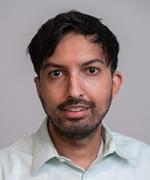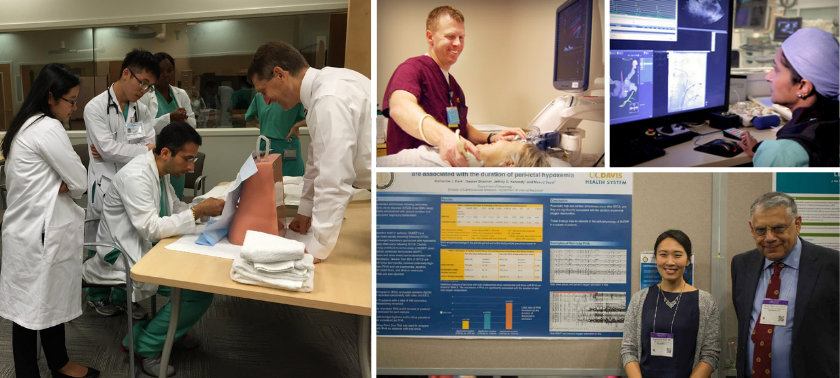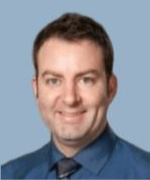Epilepsy Fellowship
Welcome to the UC Davis epilepsy fellowship training website. We appreciate your interest in our program and are excited to share our program with you. The mission of our training program is to foster expert epileptologists of the future, who will provide the highest-quality patient care for a diverse population and make significant contributions to the field of epilepsy as clinicians, educators and researchers.
We are a level 4 comprehensive adult epilepsy program and serve patients not only across Northern and Central California but also Nevada and southern borders of Oregon.
Our fellows participate in clinical work throughout the year during which they are exposed to a wide variety of EEGs including extensive experience with ICU EEGs, surgical phase 1 and 2 adult and pediatric evaluations, neonatal EEGs, pediatric EEGs, and electrocorticography and functional cortical stimulation mapping. Trainees work with each faulty member during outpatient clinic rotations and have an opportunity to participate in our women with epilepsy clinic that is run jointly along with OB-GYN, pediatric epilepsy clinic, and responsive nerve stimulation (RNS) clinics. Fellows will also get experience programming vagus nerve stimulation (VNS) and deep brain stimulation (DBS) devices during outpatient rotations. We are proud of our diverse faculty with a wide variety of training backgrounds which creates for a wholesome learning experience for our trainees.
During the first few weeks of fellowship, our fellows go through an educational bootcamp and receive 1:1 teaching from faculty to help lay a strong foundation. Over the course of the year, there are weekly didactics and monthly journal clubs ensuring year-round learning. Our fellows also work closely with our neurology residents and have ample teaching opportunities. Our faculty members actively participate in research, clinical trials, and QI projects. Trainees are encouraged to work on scholarly projects and to attend national epilepsy meetings.
We are committed to preparing our fellows to provide the highest quality of care for patients with complex epilepsies in any clinical setting, academic, or community-based practice. We look forward to hearing from you.
Best,
Kiran Kanth and Jeffrey Kennedy
|
Kiran Kanth, M.D. |
Jeffrey Kennedy, M.D. |
Fellows receive extensive and rich educational opportunities in the following:
- Interpretation of scalp EEGs in the various settings- routine outpatient, ambulatory, inpatient, critical care, presurgical monitoring evaluations.
- Medical management of epilepsy patients in inpatient and outpatient settings
- Presurgical evaluations – utilizing various investigations like PET, ictal SPECT, Wada, MRI.
- Epilepsy surgery patient management conferences
- Interpreting stereo EEG and subdural grids
- Intraoperative brain mapping
- Specialty clinics: Pediatric epilepsy, women with epilepsy, RNS and DBS.
- Neuromodulation devices – VNS, RNS and DBS
- Interpretation of evoked potentials
Program curriculum:
The fellows rotate through inpatient continuous EEG/EMU service and outpatient clinics, alternating every week. Home call does not begin until after the first month of fellowship. During the weeks of inpatient rotation, fellows are on home call with faculty supervision about 10 days and 1 weekend a month. They receive a post call day off after a week of inpatient service.
During the weeks of outpatient clinics, they attend epilepsy clinics with a different designated faculty member each day of the week. Second half of the day is spent reading outpatient routine and ambulatory EEGs.
There are 4-8 weeks of elective time, where a fellow can choose to rotate through our sleep medicine clinic/lab, EMG lab, neuropsychology or work on a scholarly activity.
The fellows are given time off to enable them to attend at least one national level educational conference.
The fellow will gain knowledge of the basic principles of evidence-based medicine and research by participating in faculty research projects. Ongoing studies in clinical epileptology under the guidance of Drs. Seyal and Kennedy include research aimed at defining mechanisms underlying sudden unexpected death in epilepsy and clinical studies involving novel antiepileptic agents. The fellow will learn to explain ongoing clinical research projects to patients before consent for a particular study is obtained.
Opportunities are also available for qualified individuals to participate in basic science research under the guidance of Michael Rogawski, M.D., Ph.D. Ongoing basic science projects include studies of functional effects of epilepsy-inducing ion channel mutations. Fellows may participate in studies utilizing animal models of seizures and epilepsy. A variety of treatment approaches are also under investigation, including traditional antiepileptic drugs as well as treatments delivered by non-conventional approaches such as convection-enhanced delivery and inhalation.
The fellowship program is directed by Kiran Kanth, M.D. , and Associate Program Director, Jeffrey Kennedy, M.D. The UC Davis Comprehensive Epilepsy Program is designated as a Level 4 Center by the National Association of Epilepsy Centers.
Faculty Resources
In addition to Kiran Kanth, M.D. and Jeffrey Kennedy, M.D., other faculty from several disciplines will participate in the educational opportunities presented by this fellowship. Those with specific expertise in epileptology include:
- Shubhi Agrawal, M.D.
- Samantha Allen, M.D., M.S.
- Melissa Asmar, M.D., M.S.c.
- Kristie Bauman, M.D.
- Jack Lin, M.D.
- Reena Nanjireddy, M.D.
- Nigel Pedersen, M.D.
- Masud Seyal, M.D., Ph.D.
- Sheela Tropani, M.D., Ph.D.
- Caren Armstrong, M.D., Ph.D.
- Amy Brooks-Kayal, M.D., F.A.A.N., F.A.N.A., F.A.E.S.
- Trishna Kantamneni, M.D.
- Temitayo Oyegbile-Chidi, M.D., Ph.D., F.A.A.N.
- Neggy Rismanchi, M.D., Ph.D.
- Courtney J. Wusthoff, M.D., M.S.
We are fortunate to have access and opportunities to learn from various other experts within the field of neurology, psychology, neuroradiology and neurosurgery.
- Matthew Bobinski, M.D., Ph.D. – Neuroradiology
- Sarah Farias, Ph.D. – Neuropsychology
- Ryan M. Martin, M.D. – Neurocritical Care
- Michael A. Rogawski, M.D., Ph.D. – Neurology
- Kiarash Shahlaie, M.D., Ph.D. – Neurosurgery-epilepsy
- Craig Watson, M.D., Ph.D. – Neurology
- Lara Zimmermann, M.D. – Neurocritical Care
Some words from our recent graduate:
 Sami Bajwa, M.D.
Sami Bajwa, M.D.
Kaiser Permanente, Fresno
“The thing that I loved most about the program was everyone’s availability. Everybody’s door was always open for no matter how ridiculous the question was. (and I really asked some dumb questions in the beginning). I could ask anybody a question any time I needed, regardless of the call schedule. It has the benefit of being a busy academic program while maintaining the comfort of a much smaller program. The new program directors were very receptive to new ideas and constantly looking for ways to make an already excellent program better. You build relationships for life and everyone is always just a text message away. During your time there you get comfortable with EEG’s very quickly and by the time you’re done with your fellowship, you leave knowing that you’ve seen almost everything and feeling confident in your abilities to practice independently.” I wish that I had done a worse job so that I would have had to be held back and spend more time there.”
 Katherine Park, M.D.
Katherine Park, M.D.
Assistant Clinical Professor
 Palak D. Parikh, M.D.
Palak D. Parikh, M.D.
Assistant Clinical Professor
We offer a one-year fellowship program for the 2026-2027 year in Epilepsy, which is accredited by the Accreditation Council for Graduate Medical Education (ACGME).
Qualified candidates will hold an M.D. or D.O. degree from an accredited institution, will have completed a residency in Neurology, and must possess a license from the Medical Board of California or apply for one at least 4 months in advance. Foreign medical graduates will be considered if they have completed a U.S.-based residency program.
To Apply



